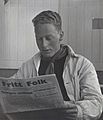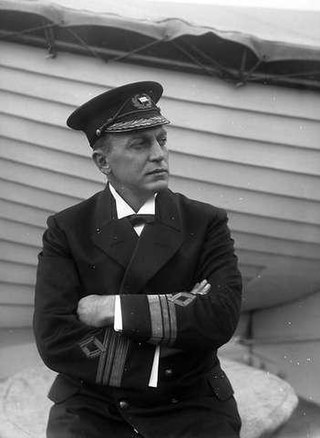
Kjeld Stub Irgens was a Norwegian politician during the German occupation of Norway.
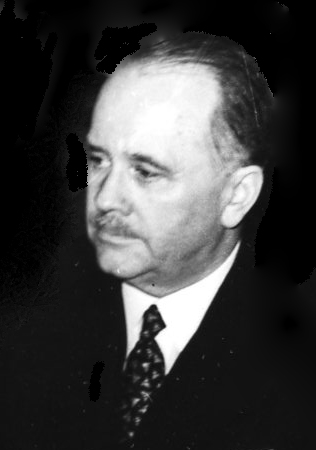
Erling Sandberg was a Norwegian banker and politician.

Per Reidarson was a Norwegian composer and music critic.

Quisling regime and Quisling government are common names used to refer to the fascist collaboration government led by Vidkun Quisling in German-occupied Norway during the Second World War. The official name of the regime from 1 February 1942 until its dissolution in May 1945 was Den nasjonale regjering. Actual executive power was retained by the Reichskommissariat Norwegen, headed by Josef Terboven.

Wilhelm Frimann Koren Christie was a Norwegian jurist and Nazi collaborator. He is best known as director of the Norwegian Broadcasting Corporation for some time during the occupation of Norway by Nazi Germany.
Eyvind Mehle was a Norwegian radio personality, media professor and Nazi collaborator.

Victor Andreas Emanuel Mogens was a Norwegian journalist, editor and politician for the Fatherland League.

Alf Larsen Whist was a Norwegian businessperson and politician for Nasjonal Samling.
Roald Rachlew Dysthe was a Norwegian businessperson and acquitted Nazi collaborator.
Finn Thrana was a Norwegian barrister and civil servant for Nasjonal Samling.
Kåre Trygve Rein was a Norwegian trade unionist.
Erling Olsen (1901–1983) was a Norwegian trade unionist.
Odd Erling Melsom was a Norwegian military officer and newspaper editor.
Folk og Land was a Norwegian newspaper, published in Oslo. It was an organ of Historical revisionism (negationism) for Norwegians who were found to be Nazi collaborators during the Second World War.
Fagopposisjonen av 1940 was a grouping among Norwegian trade unionists in 1940, after the German invasion of Norway.
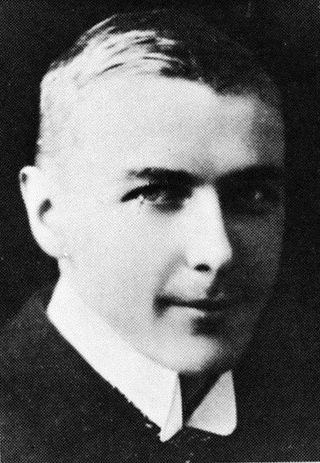
Sverre Krogh was a Norwegian actuary, newspaper editor and politician for the Labour and Communist Labour parties. He later became a Nazi, working for Norwegian and German Nazis during the Second World War.
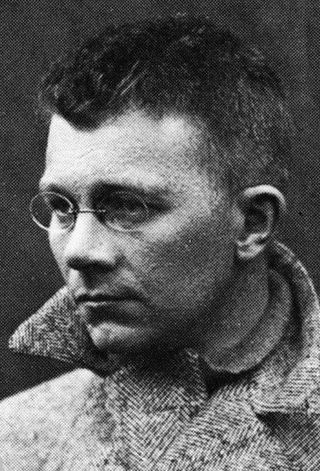
Albin Konrad Eines was a Norwegian newspaper editor and politician for the Labour and Communist Labour parties. He later became a Nazi, working for Norwegian and German Nazis during the World War II.
Ørnulf Egge was a Norwegian politician for the Workers' Youth League and Communist Party and resistance member during World War II.
Carl Dietrich Hildisch was a Norwegian businessperson and politician for Nasjonal Samling.

Øyvor Hansson, née Styren was a Norwegian politician for Nasjonal Samling.

